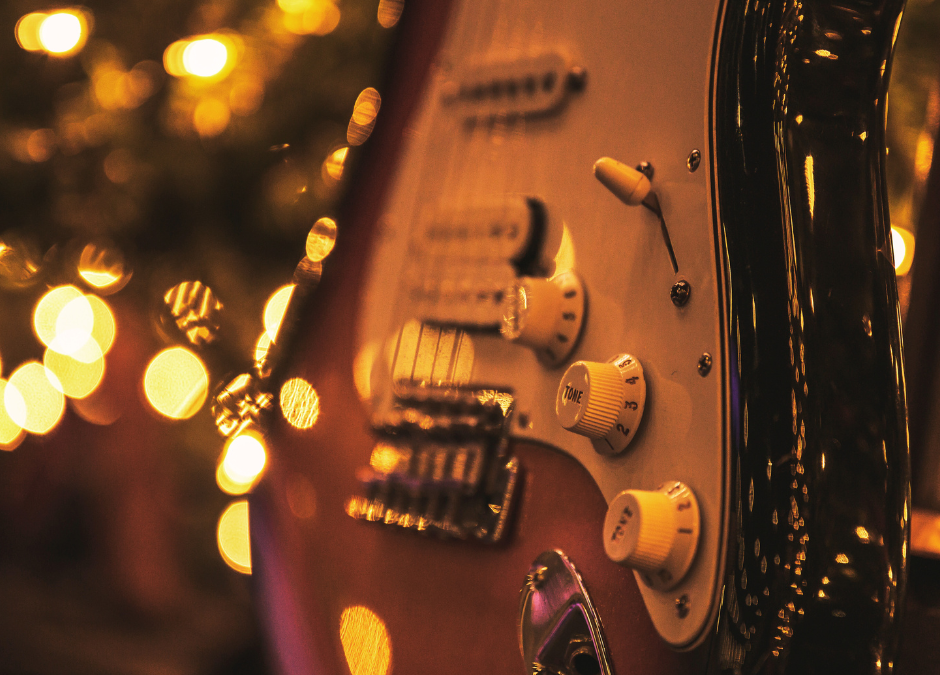What Is Jewish Rock? How Did It Come Into Being? What Are the Current Trends?
Music has long been an integral part of Jewish culture, often playing a special role in Jewish religious practices. The Pizmonim are traditional Jewish tunes sung both to praise God and to facilitate certain teachings. The baqashot, practiced in Sephardic communities in Turkey, Morocco and Syria, include songs in praise of God, for Shabbat, and of longing for the Holy Land. Another popular form of Jewish music, known as Jewish rock, originated around the middle of the 20th century and remains vibrant today.
What Is Jewish Rock?
At its most fundamental level, Jewish rock is contemporary religious music that draws influence from modern secular rock music. Though early Jewish rock often focused on the acoustic traditions found in 1960s American and European folk music, it soon began to incorporate more electric styles associated with modern jazz and classic rock.
The Origins of Jewish Rock
Gershon Kingsley, a German-American whose Jewish parents fled Germany in 1938, was a self-taught musician who initially played the piano. In the aftermath of the Second World War, he emigrated to America, graduating from the Los Angeles Conservatory of Music in 1946. In the early 1960s, he played with a couple of avant-garde outfits, before embarking on a solo career as a Moog synthesizer artist. During that period, he began writing music that fused modern rock and jazz motifs with Jewish religious music.
At the same time, Shlomo Carlebach, the so-called “singing rabbi,” began blending traditional Jewish songs with folk music. Known as Reb Shlomo to his fan base, he infused his melodies with both acoustic guitar and piano.
In 1975, some students at the Diaspora Yeshiva in Jerusalem put together what many consider to be the first true Jewish rock band, not surprisingly known as the Diaspora Yeshiva Band. The original lineup included electric guitars, bass, fiddle, mandolin, banjo, harmonica, violin, saxophone, clarinet and drums. The group’s music featured contemporary rock and bluegrass modalities built around Jewish themes. Members of the group commonly described their genre as “Hasidic rock” or as “Country and Eastern.”
The 1980s saw recordings from Tofa’ah, an all-female Orthodox rock group, with influences that included jazz, blues and rock and roll. In 1985, Lenny Solomon formed the legendary Shlock Rock Band, which put out Jewish-influenced parodies of classic rock music. Among the nearly 40 albums they have since recorded are:
- A Shabbat in Liverpool, a collection of Shabbat songs arranged to the melodies of Lennon and McCartney
- Woodschlock, with takes on songs from the 1969 rock festival
Popular song parodies in the Schlock Rock library include:
- We’ve Got a Strong Desire, to the tune of Billy Joel’s “We Didn’t Start The Fire”
- My Bekeshe Needs Cleaning, to the tune of “California Dreamin’”
- Sweet Aroma of the Challah, to the tune of Lynyrd Skynyrd’s “Sweet Home Alabama”
The 1990s—New Wave Influences Jewish Rock
In the mid-1990s, Diaspora Yeshiva Band founders Adam Wexler and Yehuda Katz formed a jam band influenced by the music of the Grateful Dead. Other notable Jewish rock bands of the decade included Moshav and Soulfarm, both featuring the sons of Ben Zion Solomon, another founding member of Diaspora Yeshiva Band.
The Millenium and Beyond
Around the turn of the century, a number of Jewish singer-songwriters started to receive airplay in Israel and around the world, including RebbeSoul, Craig Taubman, Dan Nichols, Sam Glaser and Rick Recht. In 2001, Yeshiva University’s Blue Fringe took pop motifs from a variety of acts, from the Beatles to Radiohead, to record their debut recording entitled My Awakening. At the same time, self-describe “Hasidic reggae fusion” musician Matisyahu earned a Grammy nomination for his debut album Youth, which peaked at number 5 on Billboard’s Top 200 and went gold.
The 1990s and 2000s also saw Jewish rock heavily influenced by the grunge scene in America, with bands like Hamakor and Heedoosh emulating Nirvana, Pearl Jam and Alice In Chains. Yidcore, Black Ox Orkestar, Sefarad, The Shondes and others fused punk with Jewish rock with some success.
Carrying On the Tradition—Jewish Rock Bands Today
A number of well-known acts on today’s musical scene continue to fuse Jewish culture with popular music:
- Brooklyn-based Golem offers a rock-infused version of klezmer music
- Dudu Tassa fuses melodies and rhythms from Iraqi Jewish traditions with classic rock
- The Sway Machinery draws from cantor music, embellishing it with contemporary influences
Gutterman’s and Gutterman Warheit—Serving the Jewish Community for More Than Five Generations
At Gutterman’s and Gutterman Warheit, with funeral chapels in New York and Florida, we have provided comprehensive funeral and burial services to individuals and families in the Jewish faith for more than 130 years. We understand the unique customs within each Jewish tradition and can offer guidance on any issue, from the structure of the memorial services or the choice of a casket or monument to the details of sitting Shiva or the preparation of a Yahrzeit calendar. We will also work directly with the Chevra Kadisha to ensure compliance with Jewish law in the preparation of the body.
To learn how we can help, send us an email or call us at one of the numbers listed below.
Gutterman’s & Gutterman Warheit — Where Relationships Matter
Family Owned and Operated Since 1892
Rockville Centre: (516)764-9400 | Woodbury: (516)921-5757 | Brooklyn: (718)284-1500
Boca Raton, FL: (561)997-9900 | (800)992-9262

